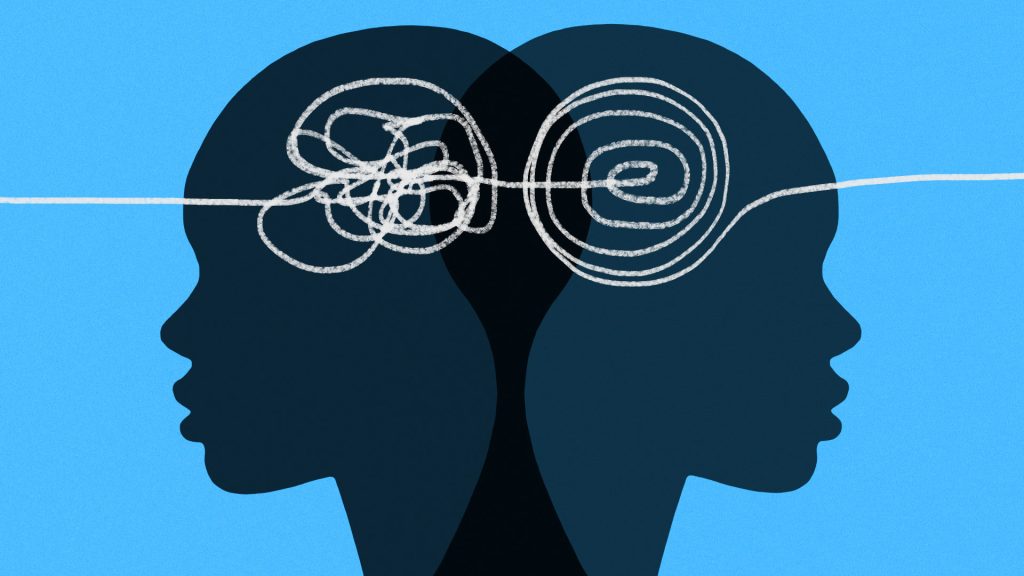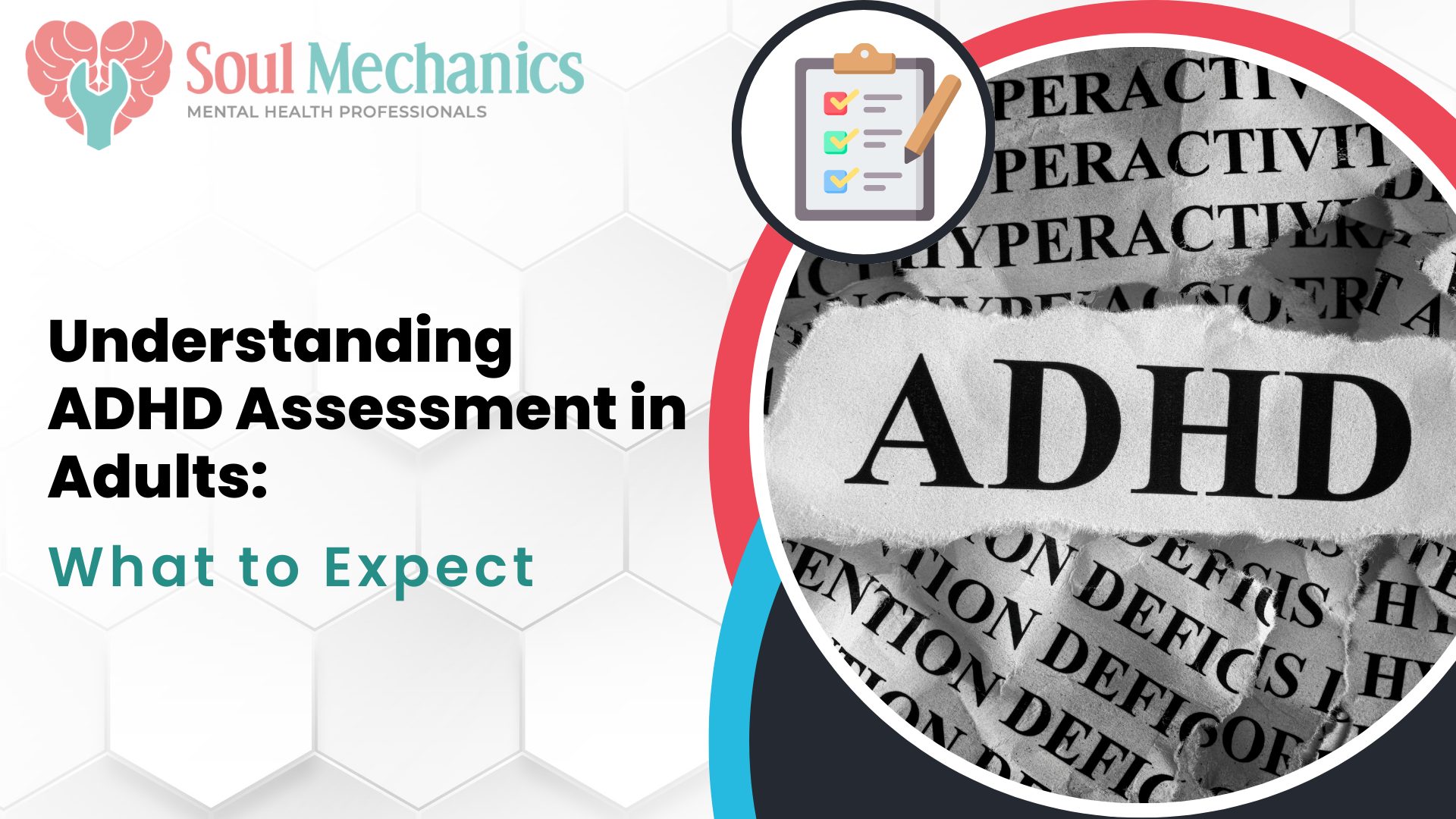ADHD Assessment in Adults: What to Expect
ADHD Assessment in Adults: What to Expect

Written By: Kelly Chan Jia Li, Clinical Psychologist (MAHPC(CP)00353)
Imagine your adulthood as a journey with a roadmap. Some can navigate the map without difficulties, while some are not able to do so, even more so if they have traits of Attention Deficit Hyperactivity Disorder (ADHD). It is like trying to navigate with a map that keeps off track, which makes staying on course a bit tougher. Adult ADHD can manifest difficulties in focusing, organizing tasks, and controlling impulses. It is like having a GPS that occasionally switches routes without warning. If you or someone you know resonate with what is being described here and would like to learn more about ADHD assessments, you are in luck! We will navigate the process and what to expect during adult ADHD assessment.
There are three subtypes of ADHD, which are predominantly inattentive, predominantly hyperactive-impulsive, or combined. Hence, ADHD assessment in adults involves a series of steps to determine whether someone has ADHD and the subtypes. These assessments are usually conducted by clinical psychologists. Let's break down the process.
Reminder: If you or your loved ones are struggling with ADHD symptoms or are suspected of having ADHD, please don't hesitate to reach out to us at Soul Mechanics KD or Soul Mechanics Ipoh.
Remember, seeking help is not a sign of weakness but strength!

The ADHD Adventure
STEP 1: SEEKING HELP
Imagine you are driving, and you notice the signboards are getting a bit blurry. You have trouble staying on course and may make a careless turn. This is how it feels for adults with ADHD. Recognizing these difficulties is the first step, like realizing you might need glasses. You might experience challenges such as forgetfulness, difficulty focusing, blurting out whatever comes to mind and struggles with attention. These are like the blurry road signs, indicating something might be wrong with your eyesight.
Just as you would visit an optometrist (eye doctor) for vision problems, it is important to reach out to a clinical psychologist when you suspect having ADHD. It is crucial not to self-diagnose as having ADHD, just like you would not diagnose yourself having an eye problem without consulting a doctor.
STEP 2: THE ADHD ASSESSMENT PROCESS
Once you have decided to seek help, the assessment process begins. Consider it a thorough examination, similar to a doctor diagnosing an illness. The assessment process typically begins with an initial consultation (or intake session). You will have discussions with a clinical psychologist to explore your ADHD symptoms and their impact on your life. Here is a bit like describing your symptoms to a doctor when you are not feeling well. You will also discuss your background information (typically personal history), including your childhood and school experiences. The session will generally end with the clinical psychologist walking you through the type of assessments they will use for further investigation of the ADHD symptoms.
STEP 3: GATHERING INFORMATION FROM MULTIPLE PERSPECTIVES
An important part of the assessment is gathering information from various sources. It is like putting together puzzle pieces to get the full picture. In this stage, you may be asked to complete questionnaires that assess ADHD symptoms. These are like checklists that help in understanding the extent of your challenges. The clinical psychologist will also conduct a comprehensive interview regarding your experiences with ADHD symptoms starting from childhood to adulthood.
Subsequently, the clinical psychologist will also conduct a diagnostic interview with your family members, partners/spouse, close friends or employers to provide their observations. This is more like getting input from people who know you well. This stage requires at least two sessions to get a bigger picture of your symptoms.


STEP 4: PUTTING THE PUZZLE TOGETHER
Now, you are assembling a puzzle. As each piece fits into place, you start seeing the complete picture. The clinical psychologist will do criteria matching your symptoms to the specific criteria outlined in the Diagnostic and Statistical Manual of Mental Disorders–Fifth Edition (DSM-5). This step is to ensure that all the pieces of the puzzle fit perfectly.
At the same time, just as a doctor eliminates other possible causes of your symptoms before diagnosing an illness, the clinical psychologist will consider other conditions that might mimic ADHD symptoms. The clinical psychologist will also determine the specific subtype of ADHD, whether it is predominantly inattentive, predominantly hyperactive-impulsive, or combined, before reaching a formal diagnosis.
STEP 5: ASSESSMENT FEEDBACK AND WHAT TO EXPECT NEXT
Once you have an ADHD diagnosis, it is like having a diagnosis for your blurry vision. You can now understand the source of your challenges and work on managing them. The clinical psychologist will have a discussion with you regarding your assessment results, ADHD education and treatment options (e.g., psychotherapy, medication) for you to manage the symptoms effectively. In this stage, it is like getting prescription glasses to correct your vision. You will also learn more about ADHD and how it affects your life. Understanding the condition is crucial for managing the symptoms effectively.
Concluding Thought: The ADHD Adventure
ADHD assessments are like navigating a complex but rewarding adventure. By seeking help and getting a proper diagnosis with guidance from a clinical psychologist, you can better understand your challenges and develop strategies to lead a fulfilling life. Just remember, you are not alone on this journey, and there is a supportive community ready to guide you.
If you enjoyed reading this, why not broaden the horizon of knowledge by learning about "ADHD In Adulting: The Hidden Battles"?
You can read the blog here.
For more content related to mental health do follow us on our official Instagram.

